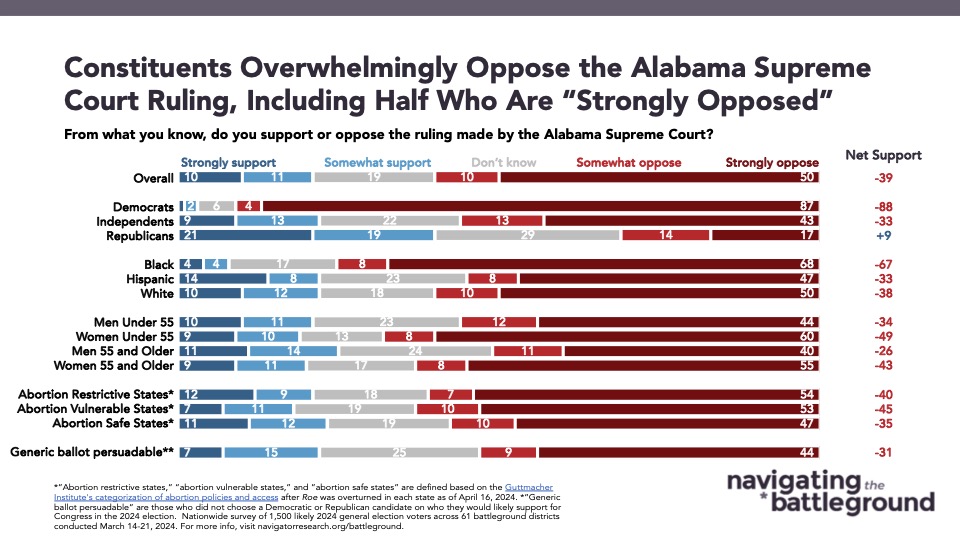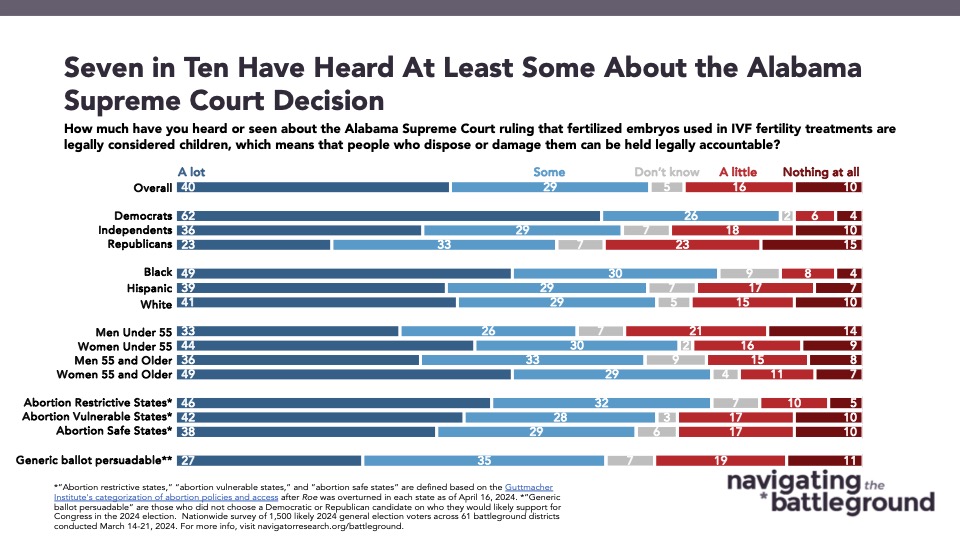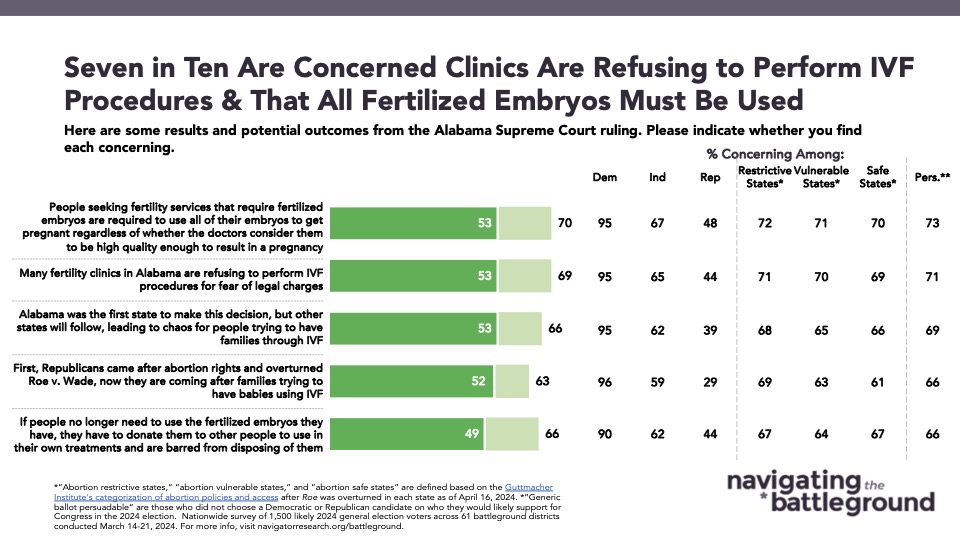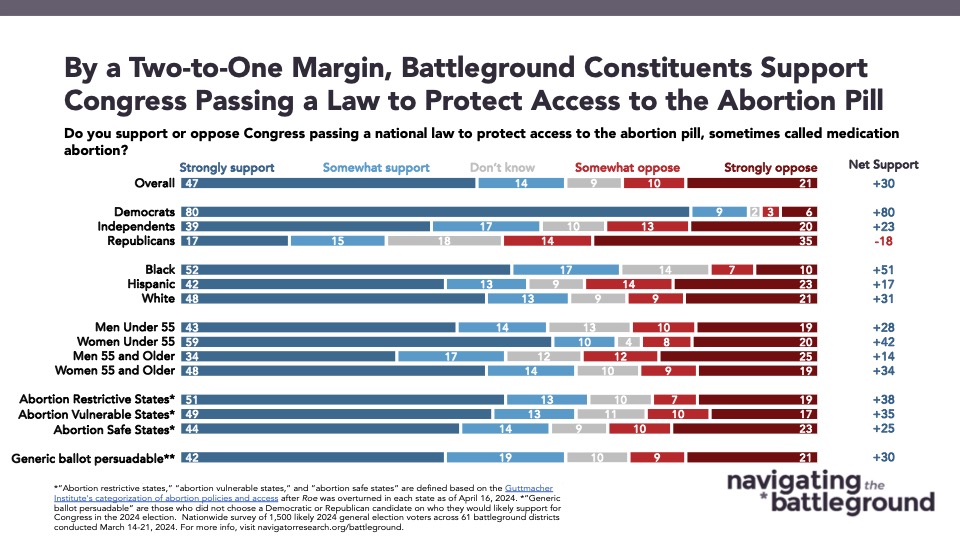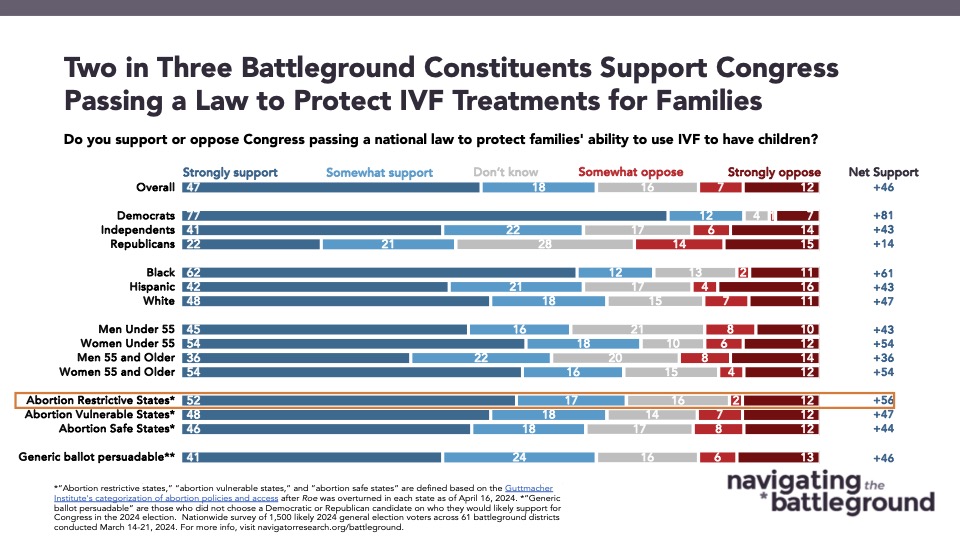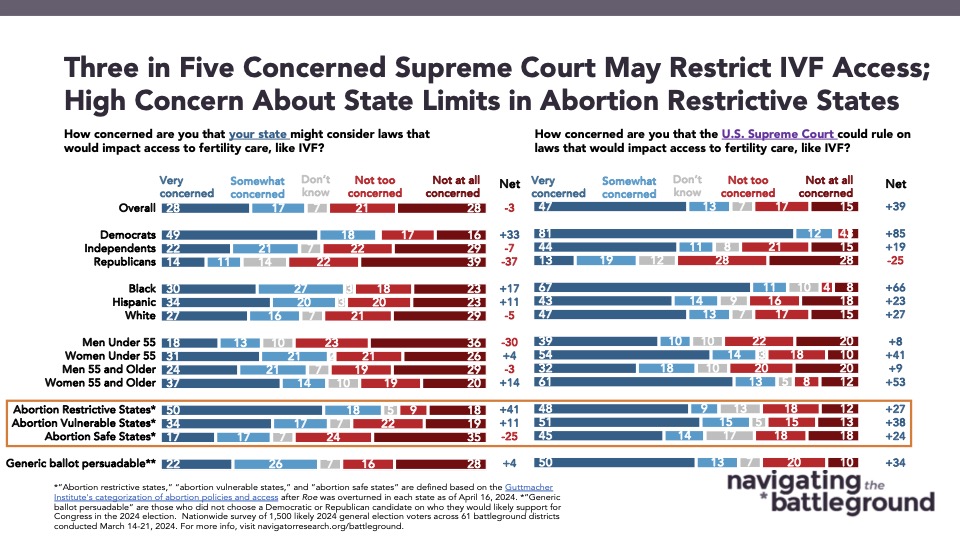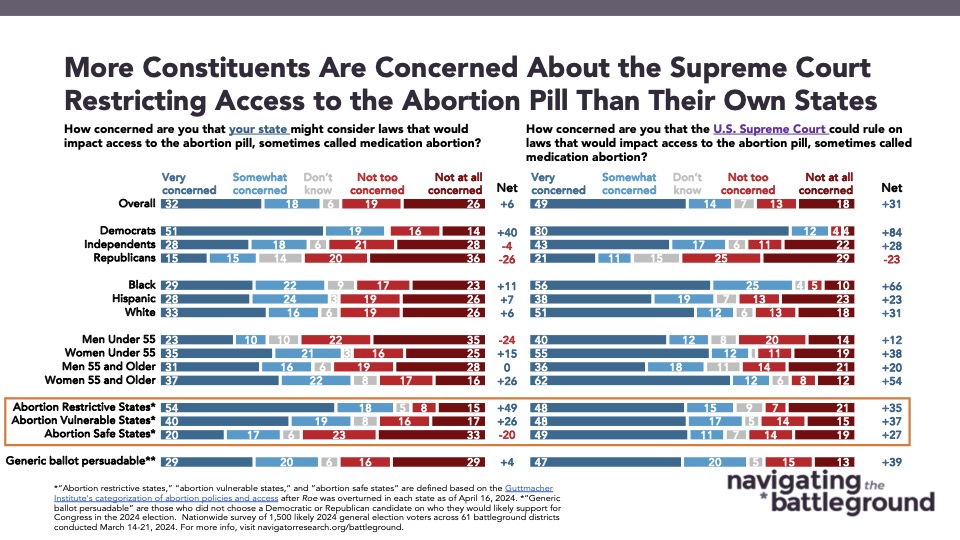Battleground Poll: Abortion Pill and IVF
This Navigator Research report contains polling data on how Americans in the closely-divided battleground House districts view the recent Alabama Supreme Court decision impacting IVF, including the most concerning outcomes from the decision and support for Congress federally protecting both medication abortion and IVF. Battleground districts include House districts where constituents are closely divided along conservative and progressive ideological lines.
Three in five battleground constituents oppose the Alabama Supreme Court decision ruling fertilized embryos are legally considered children.
By a 39-point margin, Americans living in battleground districts say they oppose the ruling made by the Alabama Supreme Court “ruling that fertilized embryos used in IVF fertility treatments are legally considered children, which means that people who dispose or damage them can be held legally accountable” (21 percent support – 60 percent oppose.
- Opposition to this decision is strong regardless of the partisan affiliation of their congressional representative: 62 percent of constituents represented by Democratic lawmakers oppose the decision, as do 58 percent of constituents represented by Republican lawmakers.
- Battleground constituents are more likely to have heard about the decision than Americans in our national survey: seven in ten battleground constituents report hearing at least “some” about the decision, including 40 percent who say they have heard “a lot” about it. This compares to 55 percent of Americans across the country who say the same, including just 25 percent of Americans who report hearing “a lot” about it. Democrats in battleground House districts are significantly more likely to have heard about the ruling (89 percent “some,” including 62 percent “a lot”), compared to independents (65 percent “some,” including 36 percent “a lot”) and Republicans (56 percent “some,” including 23 percent “a lot”).
Clinics refusing to perform IVF procedures and requiring that all embryos be used are the most concerning outcomes of the Alabama Supreme Court’s case decision.
At least two in three find potential outcomes of the case concerning, including that “people seeking fertility services that require fertilized embryos are required to use all of their embryos to get pregnant regardless of whether the doctors consider them to be high quality enough to result in a pregnancy“ (70 percent concerning, including 53 percent “very concerning”), that “many fertility clinics in Alabama are refusing to perform IVF procedures for fear of legal charges” (69 percent concerning, including 53 percent “very concerning”), and that “if people no longer need to use the fertilized embryos they have, they have to donate them to other people to use in their own treatments and are barred from disposing of them” (66 percent concerning, including 49 percent “very” concerning).
Constituents want Congress to take action and protect both IVF treatments and access to the abortion pill.
At least three in five battleground constituents support Congress passing laws to protect abortion medication and IVF, as majorities are concerned about the Supreme Court’s potential ruling. By a 30-point margin, battleground constituents support Congress passing a national law to protect access to the abortion pill, sometimes called medication abortion (60 percent support – 30 percent oppose), including 89 percent of Democrats, 50 percent of independents, and 33 percent of Republicans. An even larger share support Congress passing a national law to protect families’ ability to use IVF to have children (net +46; 65 percent support – 19 percent oppose), including 88 percent of Democrats, 59 percent of independents, and 44 percent of Republicans.
- Three in five constituents are concerned that the U.S. Supreme Court could rule on laws that would impact access to medication abortion (62 percent) and fertility care, like IVF (61 percent). They are significantly more concerned than those who worry about state laws that could impact medication abortion (net +5; 49 percent concerned – 44 percent not concerned) and fertility care, like IVF (net -3; 45 percent concerned – 48 percent not concerned).
- Battleground constituents living in states with restrictive abortion laws are significantly more concerned about their state considering laws that would impact access to reproductive health care: more than two in three of those living in states with “most” and “very” restrictive abortion laws are concerned about their state considering laws that would impact access to medication abortion (68 percent) and fertility planning, like IVF (72 percent). In states with “restrictive” abortion laws that are not as onerous as the “most” and “very” restrictive abortion law states, smaller majorities are concerned about restricting access to medication abortion and fertility planning (52 percent and 59 percent, respectively). Among those living in states with “some” protections on abortion, concern is significantly lower for laws reducing access to medication abortion and fertility planning (34 percent and 37 percent, respectively).
About The Study
Impact Research conducted public opinion surveys among a sample of 1,500 likely 2024 general election voters from March 14-21, 2024. The survey was conducted by text-to-web (100 percent). Respondents were verified against a voter file and special care was taken to ensure the demographic composition of our sample matched that of the 61 congressional districts included in the sample across a variety of demographic variables. The margin of error for the full sample at the 95 percent level of confidence is +/- 2.5 percentage points. The margin for error for subgroups varies and is higher.

